Reading Gaol: Ten years of hopes and bids at Oscar Wilde prison
- Published
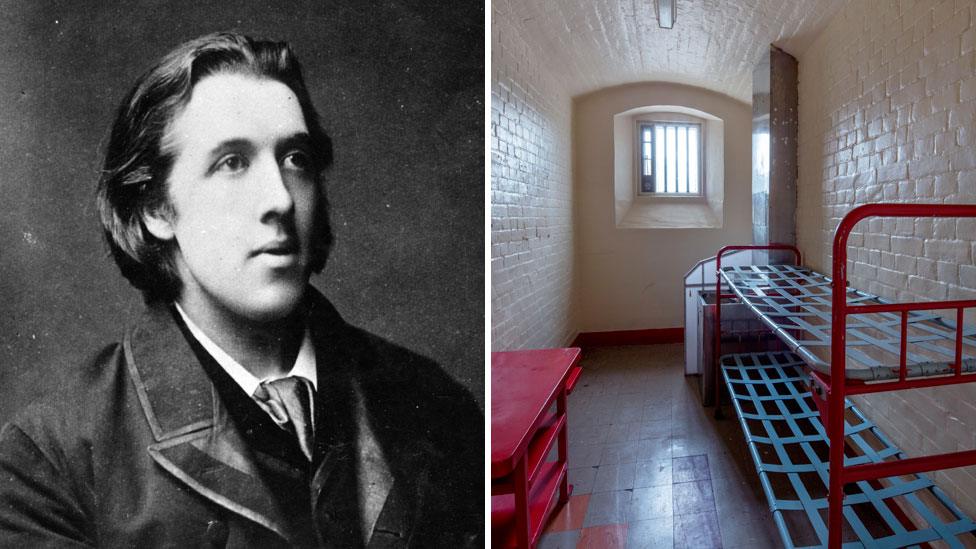
Wilde was condemned to his cell at the prison after being convicted of gross indecency - effectively for being gay
Ten years ago, the last inmate left a historic jail immortalised in a poem by its best known resident Oscar Wilde.
In the decade since, the local council, campaigners and celebrities have urged the Ministry of Justice (MoJ) to turn Reading Gaol into an arts hub.
But in September, the government said the sale of the prison was close to completing despite thousands signing an MP's petition against the plan.
The BBC has taken a look back at the now-empty site's rich history.
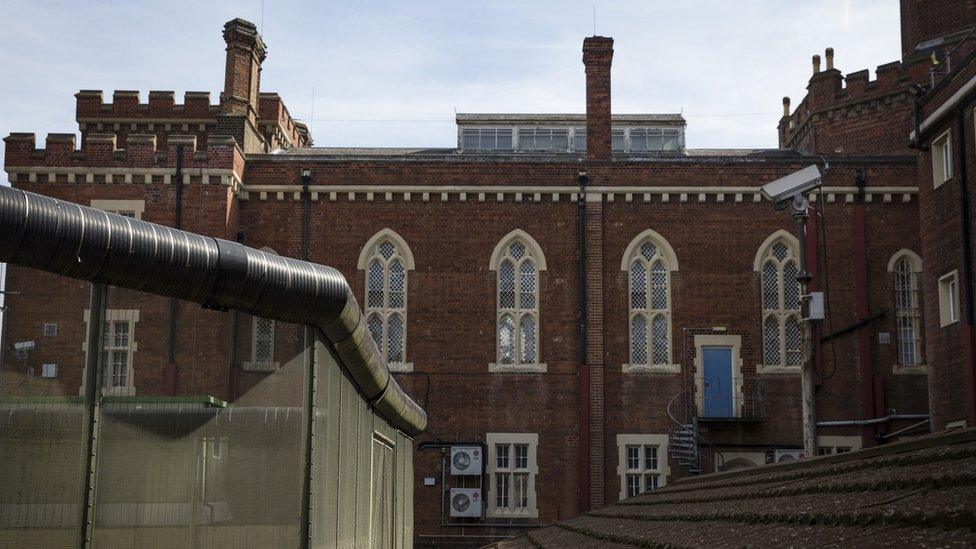
It has previously been reported the empty prison costs more than £250,000 a year to maintain
The first "house of correction" on the town's Forbury site was built by the Berkshire justices in 1785, according to the Royal Berkshire Archives.
The county record office said it had a communal day room and dormitories, no plumbing or sanitation, a treadmill for grinding wheat and an ornamental garden.
After the prison was criticised by then-Home Secretary Sir James Graham, the justices decided to build a new one on the site in 1842, based on the "model prison" at Pentonville.
Designed to hold 200 male criminals in three wings, a "handful of bankrupt debtors in a fourth wing" and a block for 25 female convicts, the jail opened on 1 July 1844.
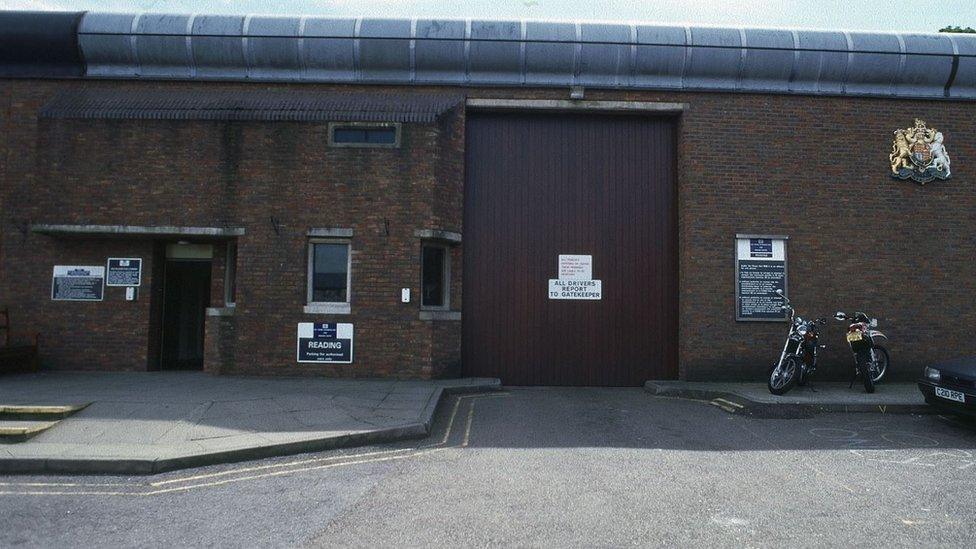
The last inmate left the prison in November 2013
Irish playwright and poet Oscar Wilde arrived in November 1895 and spent two years at the jail after being convicted of gross indecency - effectively for being gay.
He spent the last three years of his life in exile in France, where he composed his last work The Ballad of Reading Gaol, a nod to his time at the prison.
In 1978, the building was designated as Grade II listed before becoming a remand centre and young offenders institution in 1992.
Two decades later, in September 2013, it was announced that HM Prison Reading would close by the end of that year.
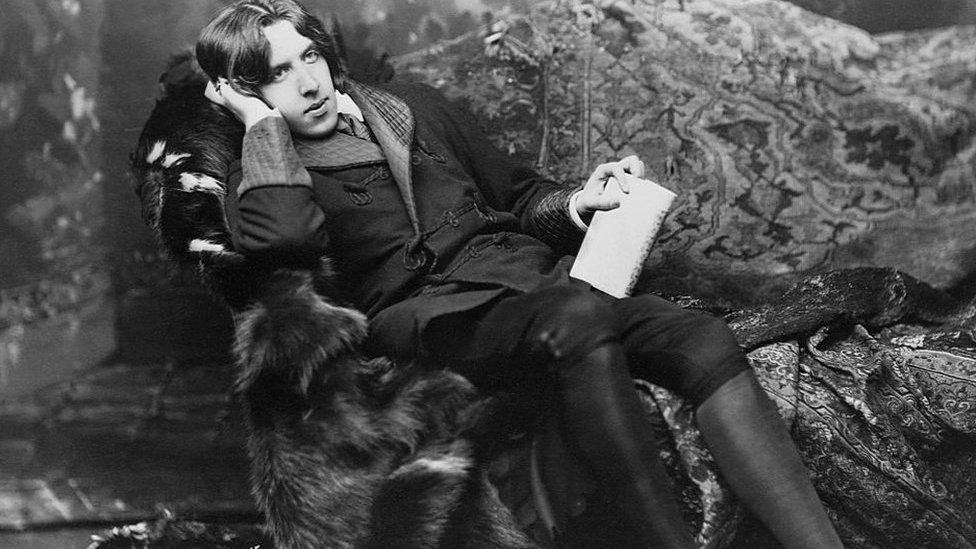
Oscar Wilde was convicted after an affair he was having with Lord Alfred Douglas was exposed
The last inmate left the prison on 22 November and the jail formally closed in January 2014.
The idea for the building to be turned into a theatre and arts hub gained popularity after it was used for an arts exhibition in 2016, celebrating Wilde.
The campaign to give the prison to theatre and arts community use has gained support from Hollywood stars including Stephen Fry, Natalie Dormer, Kate Winslet, Dame Judi Dench and Sir Kenneth Branagh.
But the MoJ announced in October 2019 that the site was to be sold.
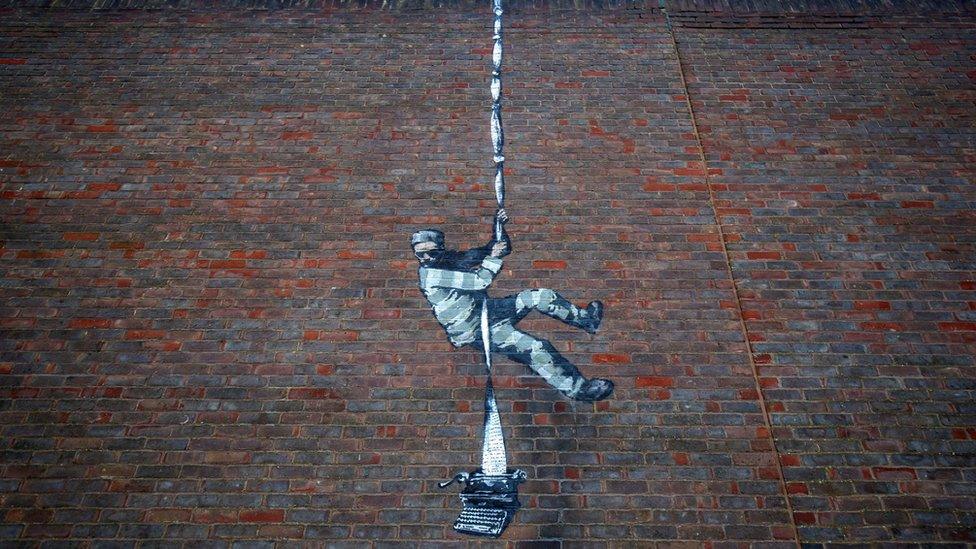
The artwork appeared overnight on the prison's wall
In March 2021, artwork bearing the hallmarks of street artist Banksy appeared on the side of the prison.
He later confirmed the picture showing a prisoner - possibly resembling famous inmate Oscar Wilde - escaping on a rope made of bedsheets tied to a typewriter was his work.
Oscar-winning actress Kate Winslet, who grew up in Reading, joined the calls to turn the old jail into an arts venue, saying it was "incredible" Banksy had chosen it for his painting of an escaped prisoner.
She even promised to perform on opening night if the plans became a reality.
The Titanic star said she learned to act in scout halls, church halls and school gyms across Reading
But in May 2021 it was announced that Reading Borough Council's bid for the prison had been rejected by the Ministry of Justice because the offer of £2.6m was too low.
Banksy stepped in and offered to match the jail's £10m asking price by selling the stencil he used to paint on the Grade II-listed building - but only if the bid was awarded to the council.
He explained: "Converting the place that destroyed him [Wilde] into a refuge for art feels so perfect we have to do it."
However, the MoJ said the deadline for bids had passed.
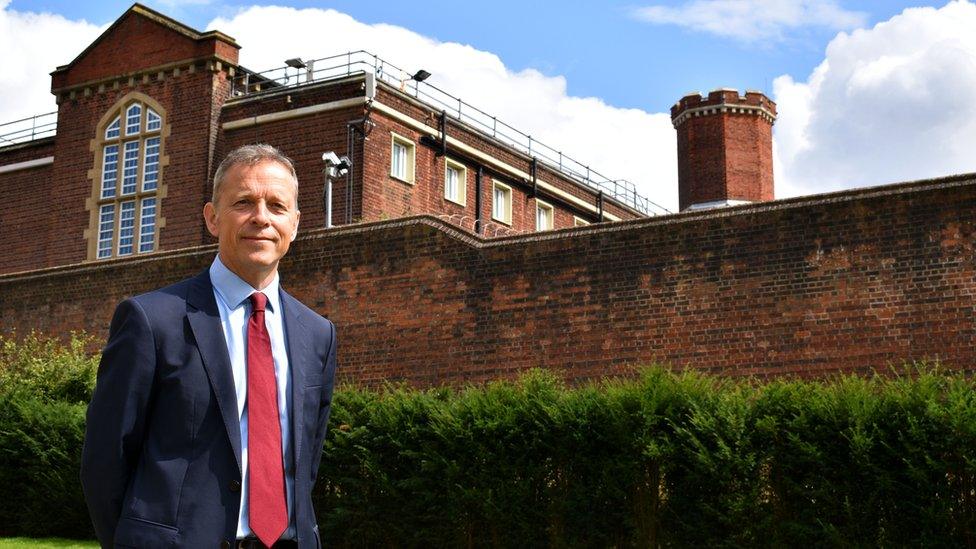
Matt Rodda, the MP for Reading East, has urged the government to let the site become an arts hub
Last year, local MP Matt Rodda, who represents Reading East, renewed the call for the derelict prison to be transformed into an arts hub, saying attempts to sell the town's former prison for development since 2013 "clearly haven't worked".
But in September this year, the MoJ said it was in the process of being sold and could be completed within months.
The Prime Minister comments on a future sale of Reading Prison, ten years after it closed.
The government has not confirmed who is buying the site but Mr Rodda has launched a petition against the plan, which has gained thousands of signatures.
One rumour is that it will be used for "charitable purposes" by the new owner - but only time will tell.

Follow BBC South on Facebook, external, X, external, or Instagram, external. Send your story ideas to south.newsonline@bbc.co.uk, external.
- Published21 September 2023

- Published22 November 2013
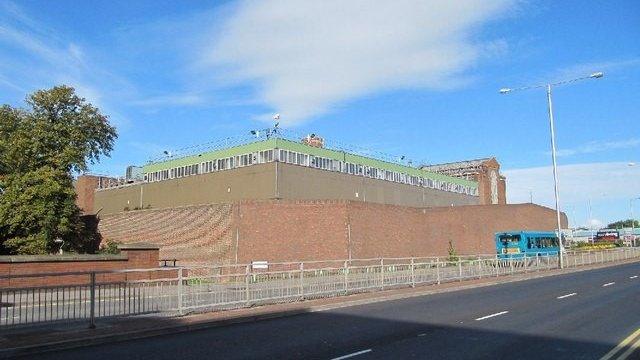
- Published5 June 2019

- Published16 September 2023

- Published25 November 2022

- Published5 December 2021
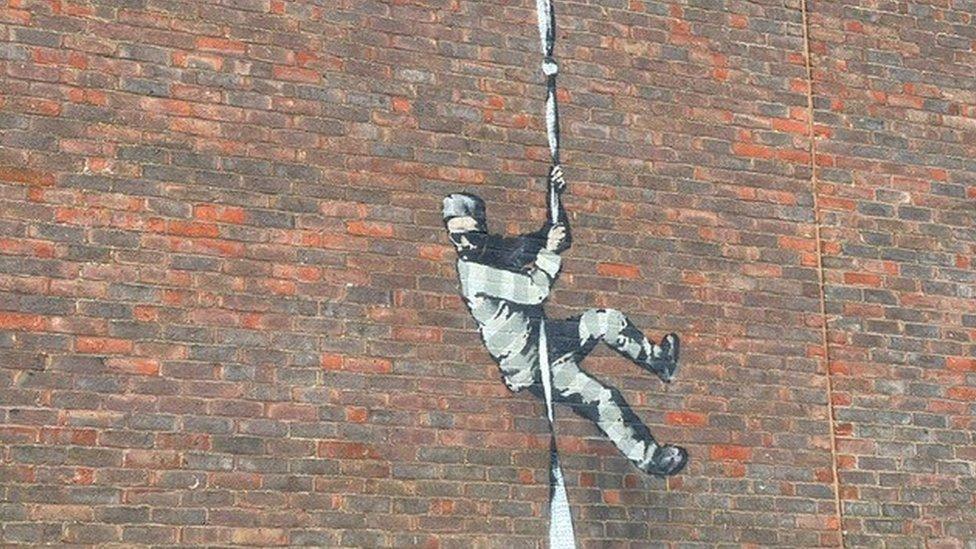
- Published18 May 2021

- Published5 December 2020
